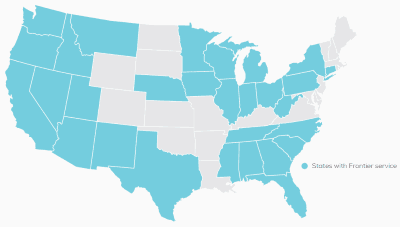 Residents in upstate New York are finding Spectrum bills in their mailbox for services they didn’t order and don’t want, after telling Spectrum telemarketers they were too busy to talk.
Residents in upstate New York are finding Spectrum bills in their mailbox for services they didn’t order and don’t want, after telling Spectrum telemarketers they were too busy to talk.
Three residents in Tupper Lake have been in touch with the village mayor, complaining they were enrolled in a $30-per-month Spectrum streaming TV service without their knowledge or consent.
Mayor Paul Maroun says recent robocalls from the cable operator were responsible for the surprise bills.
“It was a robocall that said, ‘Are you busy at the moment?'” Maroun said. “Once you said ‘yes,’ they record the ‘yes’ and they bill it.”
Maroun said he believes one or more Spectrum telemarketers are ordering new services for consumers using recorded customer responses to a different question as consent to start service. Within a month, bills start arriving in the mailboxes of consumers. Even worse, some consumers do not immediately realize they are being billed for new services they did not authorize because they chose electronic billing and autopay, which automatically pays the bill without customer intervention each month.
The problem was serious enough to be a topic of discussion by the village board, reports the Adirondack Daily Enterprise:
One alleged victim of the call is retired village electric department superintendent Marc Staves, who returned to the village board for a meeting on Wednesday as a civilian to tell the board about his experience and to warn others.
Staves said he caught the additional charge on the first month it landed on his bill. He said he is not sure how it happened because he does not remember taking a call. Staves said Spectrum told him a robocall was placed, but he said his phone records show he never answered it.
“That’s kind of underhanded,” Staves said when he learned how the call works at the village board meeting.
He has automatic payments set up on his account, but still checks the amount.
“It’s always good to keep track of your automatic deductions,” Staves said.
He was told the company would refund his money, but said after a week it still hadn’t. When he called again he said he was told the $30 charge would be taken off his next month’s bill.
“I was okay at that point until I hung up the phone and thought about it,” Staves said. “It’s really no different than me going into your wallet, taking $30 out of your wallet and telling you I’m going to work it off next month.”
He said he is “not satisfied” with the resolution Spectrum offered him, saying it is being done in a “roundabout way.”
Maroun told Staves he has received two other calls from villagers about the same problem, both for $30-per-month charges. He said those people have gotten their money back.

Mayor Maroun
Spectrum spokesperson Lara Pritchard said this was the first time she heard of this complaint and suggested third party scammers might be “spoofing” customers.
“If an offer doesn’t sound right, customers can ask the representative on the phone to validate they are an employee by looking up their account number,” Pritchard wrote in an email. “Spectrum representatives will always have an account number. Then call Spectrum (at their customer service number on your bill) and ask if there is any such person working there.”
But since consumers are being billed for the unauthorized service(s) on their Spectrum bill, the telemarketers must have a business relationship with the cable operator. It could be a third party marketing company hired by Spectrum to sell service. A bonus or commission is likely payable for each successful sale, which could be an incentive for a dishonest employee to game the system.
Stop the Cap! recommends not answering Spectrum’s telemarketing calls or just hang up immediately. Be sure to verify your bill through the My Spectrum app or website and report any unauthorized charges immediately. Consumers can also file complaints with your state Attorney General’s office. Fabien Levy, a spokesman for New York’s Attorney General told the newspaper while the office has received a number of complaints about Spectrum, none were related to this issue. That could change if consumers report these kinds of scams.


 Subscribe
Subscribe Residents of southern Vermont are upset about Comcast’s proposed acquisition of an independent cable company that has served the region for more than 30 years, fearing the cable giant will bring its reputation of high rates, poor service, and abusive customer relations to an area known for resisting large corporations.
Residents of southern Vermont are upset about Comcast’s proposed acquisition of an independent cable company that has served the region for more than 30 years, fearing the cable giant will bring its reputation of high rates, poor service, and abusive customer relations to an area known for resisting large corporations. “For more than 30 years, SVCC has offered great local service to its customers and has made significant capital investments in its system throughout the years,” Daniel M. Glanville, vice president of government/regulatory affairs and community impact for Comcast’s western New England region, said in testimony before state regulators reviewing the sale. “However, there is a need for continued capital investment as technology continues to evolve and video competition continues to increase due to an ever-growing number of video service options.”
“For more than 30 years, SVCC has offered great local service to its customers and has made significant capital investments in its system throughout the years,” Daniel M. Glanville, vice president of government/regulatory affairs and community impact for Comcast’s western New England region, said in testimony before state regulators reviewing the sale. “However, there is a need for continued capital investment as technology continues to evolve and video competition continues to increase due to an ever-growing number of video service options.” “Comcast will provide increased reliability and network capacity which will enable former SVCC customers to enjoy the full suite of Comcast’s Xfinity TV services, including the X1 platform, Xfinity on Demand (Comcast’s video on demand service), multiple high-definition offerings, sports programming and international programming,” said a Comcast representative. “Comcast will also introduce Comcast Business Services, which provides business-grade products and services for businesses of all sizes. Video customers will also be able to use the Xfinity Stream app on their tablet or smartphone to view live and Xfinity On Demand programming.”
“Comcast will provide increased reliability and network capacity which will enable former SVCC customers to enjoy the full suite of Comcast’s Xfinity TV services, including the X1 platform, Xfinity on Demand (Comcast’s video on demand service), multiple high-definition offerings, sports programming and international programming,” said a Comcast representative. “Comcast will also introduce Comcast Business Services, which provides business-grade products and services for businesses of all sizes. Video customers will also be able to use the Xfinity Stream app on their tablet or smartphone to view live and Xfinity On Demand programming.”

 Frontier Communications will file Chapter 11 bankruptcy by March, according to
Frontier Communications will file Chapter 11 bankruptcy by March, according to  Most of Frontier’s fiber-to-the-home territories were acquired by the company, hoping such acquisitions would deliver a much-needed revenue boost. But some analysts say Frontier overpaid to acquire those service areas, and in several cases botched a conversion to Frontier’s billing and service platform, alienating customers.
Most of Frontier’s fiber-to-the-home territories were acquired by the company, hoping such acquisitions would deliver a much-needed revenue boost. But some analysts say Frontier overpaid to acquire those service areas, and in several cases botched a conversion to Frontier’s billing and service platform, alienating customers. Comcast video customers will be the first to get Comcast/NBCUniversal’s new streaming platform, dubbed “Peacock,” featuring over 400 TV series and 600 movies, mostly from the library of Universal Studios, beginning this spring.
Comcast video customers will be the first to get Comcast/NBCUniversal’s new streaming platform, dubbed “Peacock,” featuring over 400 TV series and 600 movies, mostly from the library of Universal Studios, beginning this spring.